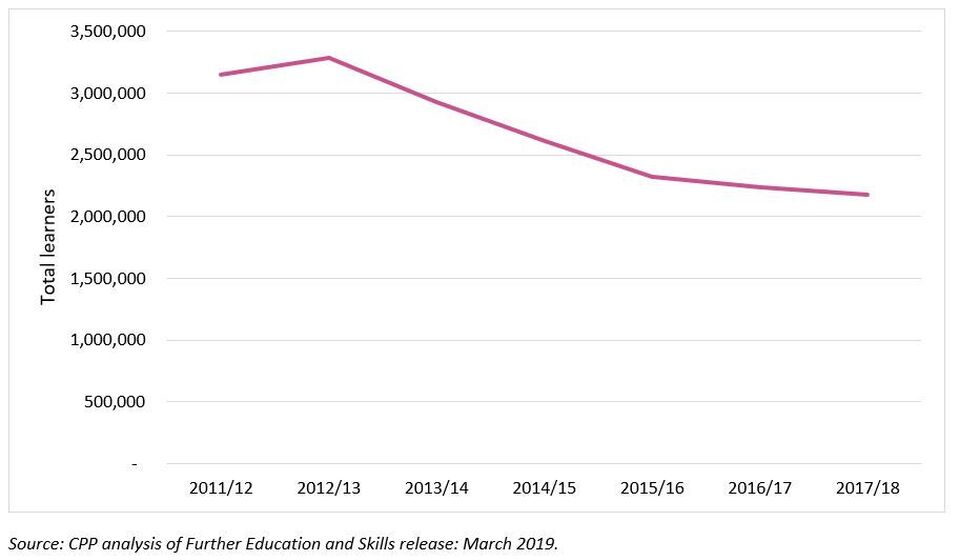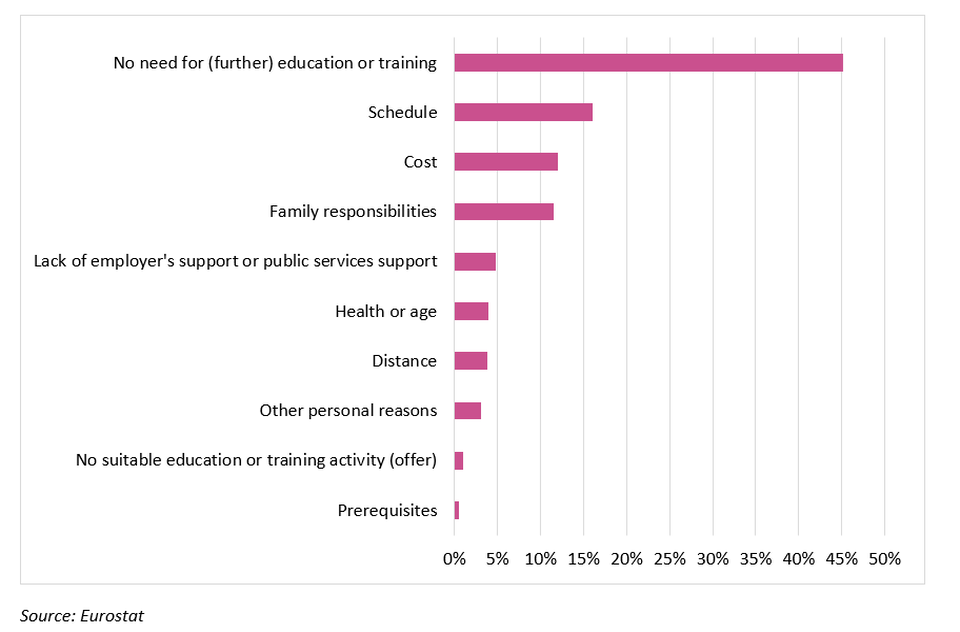Election special: Times are changing for adult skills
6 December 2019
7 minute read
Ahead of the election we take a look at what it might mean in CPP’s key policy areas. Following our blog focusing on business, we now look at the skills system where a fresh injection of funds and policy ideas are sorely needed.
There was a time when skills policy was practically absent from mainstream political discussion. So much so that Tony Blair once quipped that you could hide a declaration of war in a skills policy speech and no-one would ever notice.
Finally, it seems that times are changing. Following a summer in which the then Prime Minister Theresa May used a landmark speech to say that FE and technical colleges are “vital engines of both social mobility and of economic prosperity”, the 2019 General Election campaign has seen each of the main parties go big on skills. The Liberal Democrats, the Conservatives and the Labour Party have each made skills policy a key part of their election campaign, unveiling eye-catching proposals designed to win over voters.
Whichever party is able to form the next government faces significant challenges when it comes to our skills system, particularly as it relates to adults. Total spending on adult education and skills has fallen from £5.2bn in 2002/03 to £3.2bn in 2018/19, a real terms fall of 39% - according to the Institute for Fiscal Studies. Participation in publicly funded adult skills has also plummeted, down from its recent peak of 3.3m in 2012/13 to 2.2m in 2017/18, a drop of 34%. Between 2015/16 and 2017/18 there has been a 43% fall in part time adult learners in England, down from 671,550 to 381,900. What’s more, those who are engaged in adult education are also more likely to already be highly skilled and participation is negatively correlated with deprivation.
Chart 1: Adult FE and Skills Participation, 2011/12 to 2017/18

A fresh injection of funds and policy ideas are sorely needed. How do the efforts of our main political parties stack up?
The Conservatives
The Conservative Party’s flagship manifesto commitment on adult skills is to introduce a new National Skills Fund (NSF), beginning in 2021-22 and worth £600m per year over five years. The extra funding would be a significant boost to the £3.2bn spent on adult education and skills in 2018/19, but still leave spending below its peak of £5.2bn in 2003/04. The NSF is positioned by the Tories as a first step towards a “Right to Retrain”. However, detail is thin on the ground and a whole host of questions remain – particularly concerning eligibility rules and how the NSF will relate to the National Retraining Scheme and devolved Adult Education Budgets. In addition to the NSF, the Conservatives have pledged to make £1.8b worth of capital investment into further education colleges.
Labour
The Labour Party has used their 2019 election manifesto to reiterate their desire to introduce a ‘National Education Service’. They have pledged funding for training up to Level 3 and for up to six years of training at Levels 4-6. Additional entitlements are promised for workers in industries that are ‘significantly affected by industrial transition’. Together, this is estimated to cost £3.3bn per year by 2019-20.
Labour are also promising to create 320,000 new climate apprenticeships in their first term in government. This is welcome recognition of the central role the skills system will play in combatting climate change. However, as anyone working on apprenticeship policy in recent years will tell you, targets based on sheer quantity are dangerous. Very few people believe that the previous government target for 3,000,000 apprenticeship starts represented good policy.
The Lib Dems
The Liberal Democrats have quickly reworked their plans for ‘Personal Education and Skills Accounts’ and promised to introduce ‘Skills Wallets’. The proposals – a form of individual learning account (ILA) – would entitle every adult to £10,000 of funding towards education and training. The party estimates that this would cost £1.9 billion a year in total by 2024-25, to be paid for by raising corporation tax to 20%.
While ILAs are gaining traction following implementation in countries like Singapore and France, they are no silver bullet. As the Tony Blair government found, while ILAs are a good idea in principle, the details really do matter. The Lib Dems have left the specifics until later, promising to only introduce the skills wallets after a consultation process.
Looking across the manifestos of the three main parties, there has been a significant amount of money pledged via various programmes with catchy names. On the need for more money and status for adult skills there seems to be a consensus. But there is a dearth of detail. And so, when the details begin to emerge and the messy process of implementation begins, this consensus will inevitably fall apart.
What’s more, while additional funding is of course welcome and needed, the adult skills system doesn’t just need more money. We also need to address the non-financial barriers (including widespread apathy) that stop adults from re-engaging with education.
Chart 2: Main obstacle to participation in education and training cited by adults, UK, 2016

It was heartening to see the adult skills panel at the CPP Inclusive Growth Conference 2019 discussing the ways we can break these barriers down. The Learning and Work Institute’s Fiona Aldridge argued that we need to make learning accessible and affordable and we need to convince people of the benefits for them. Opportunities to take that first step back into learning are key. Kirsti Lord of the AoC agreed, adding that lower level short courses can be effective at engaging adults in learning again. The TUC’s Kevin Rowan pointed out that a poor system of careers advice was holding people back, arguing that people have to make choices based on the best marketing, not the best opportunity. John Cope of the CBI proposed rebranding job centres as jobs and skills centres, while also stressing the importance of place for productivity and adult skills.
It is important to acknowledge that the three-year undergraduate degree still dominates political discussion in the UK. Yet the debate is shifting, and whoever wins on Thursday, adult skills is sure to feature heavily in the new government’s plans. Making the most of this will be crucial for the future of our country and we must be ready to add detail and substance to the spending pledges outlined by political leaders. That’s why CPP will be ramping up our work on adult skills in 2020. Watch this space!